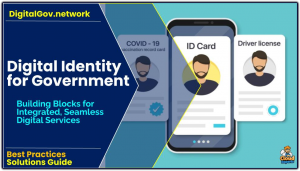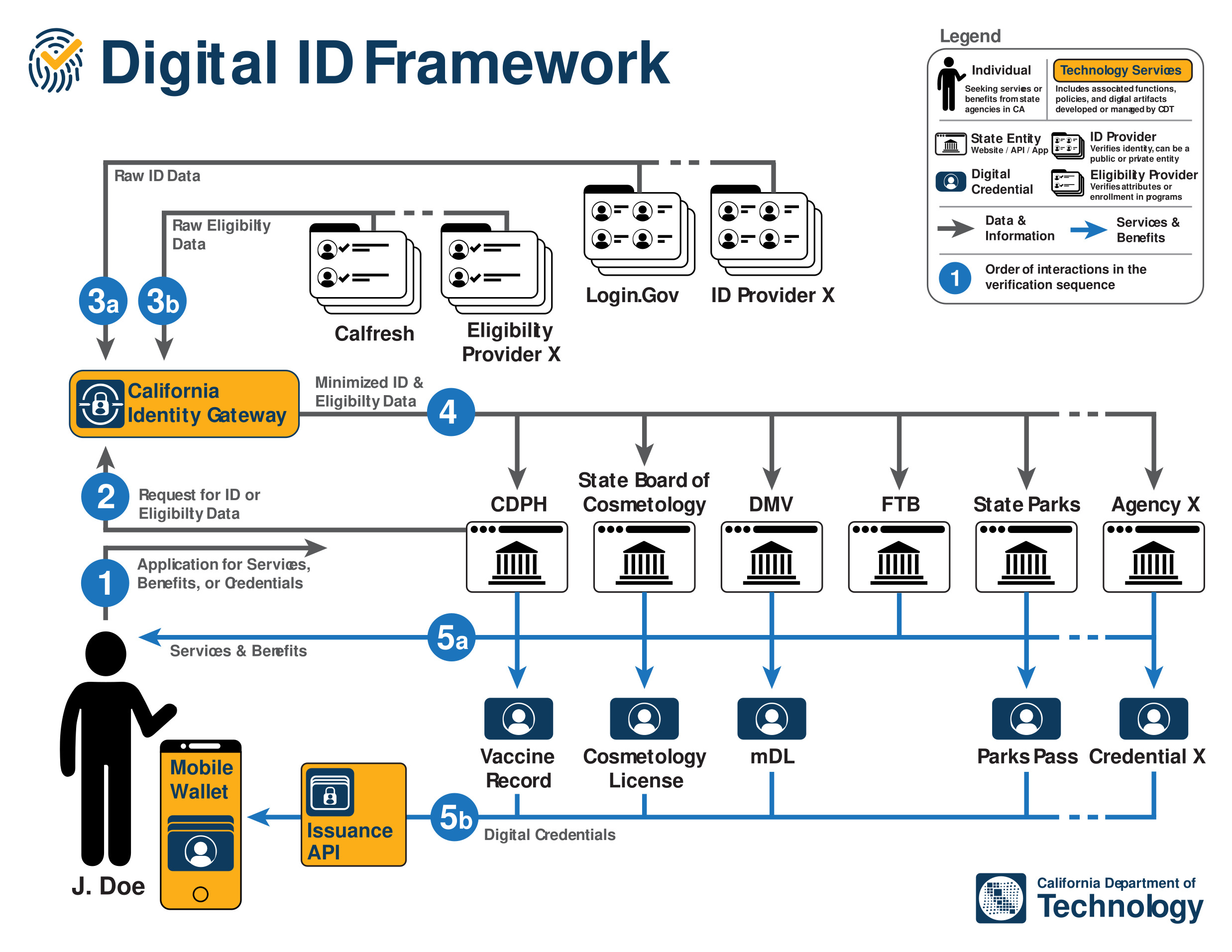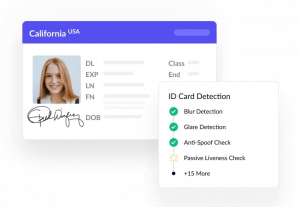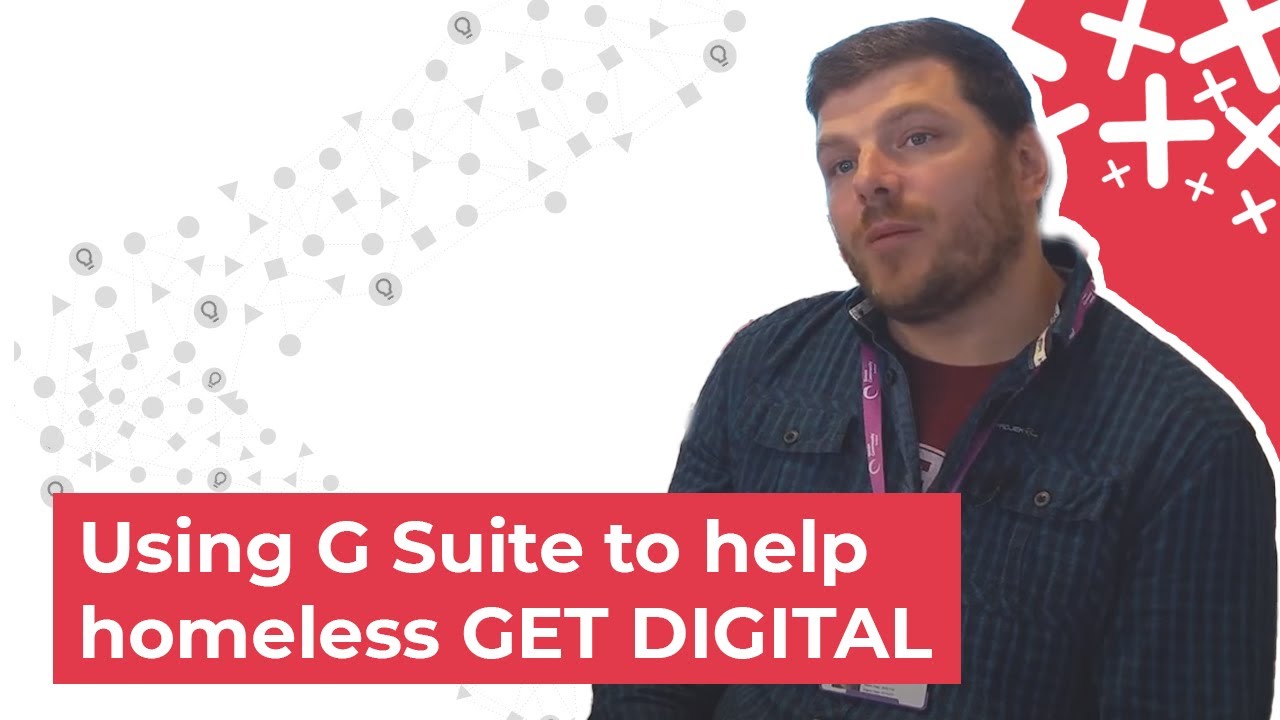California’s Digital Identity Framework: Blueprint for Digital Wallet-based Identity Services
Guided by principles of world-class security, privacy by design, access and equity, and interoperability, the framework is a cornerstone of California’s broader Digital Government Strategy.
 California’s Digital Identity Framework is a transformative system designed to streamline digital identity and program eligibility verification, enabling secure and equitable access to state services through a single, reusable digital credential.
California’s Digital Identity Framework is a transformative system designed to streamline digital identity and program eligibility verification, enabling secure and equitable access to state services through a single, reusable digital credential.
Launched in 2022 and overseen by the California Department of Technology (CDT), the framework aims to simplify how Californians interact with government services by providing a digital counterpart to physical IDs, such as driver’s licenses or passports, allowing residents to prove their identity or eligibility for benefits like transit discounts or health services online.
Guided by principles of world-class security, privacy by design, access and equity, and interoperability, the framework is a cornerstone of California’s broader Digital Government Strategy, which seeks to modernize public services through human-centered design, accessibility, and technological innovation.
Identity Services Platform
At the heart of the framework is the California Identity Gateway, a CDT-developed platform that serves as a secure intermediary between residents, state agencies like the DMV or State Parks, and identity or eligibility providers such as Login.gov or CalFresh.

Using the OpenID Connect protocol, the Gateway enables single sign-on and secure data sharing, ensuring that only necessary information is exchanged.
 Digital Wallets
Digital Wallets
California is pioneering a pilot of a mobile drivers licence, which citizens can access on their iPhones but need physical ones too.
The LA Times described how:
“One potential advantage of a digital license is that it can limit how much of your personal information you show when someone asks to check your ID. A digital license can simply confirm to a bouncer or cashier that you’re 21 or older, for example, without sharing your home address.”
California is now one of five states to offer a digital driver’s license in Google Wallet, and Governor Newsome announced they would be coming for Apple too. As State Scoop reported Georgia is latest state to integrate digital IDs with Apple Georgia residents can now add copies of their driver’s licenses to an iPhone or Apple Watch, and use them as valid ID at the Atlanta airport.
AuthenticID’s identity verification and biometric authentication technology enables California residents to easily and privately confirm their identity in seconds, while lowering the potential for fraudulent enrollments with the use of face matching and liveness detection.
Then in Nov 24 they added support for the Samsung Wallet. and the state government passed legislation, to recognize these digitized transactions.
In his Demystify Biometrics podcast subject matter expert Ashok Singal interviews Angelique McClendon, General Counsel for Georgia DMV, to explore their experiences of rolling out this innovative program, going behind the scenes of Georgia’s mDL program, sharing cutting-edge insights on mDL security & privacy and asking what’s next for the mDL ecosystem.
As of June 2025, the Gateway can process over 4,000 verification queries per second and supports partnerships with agencies like the California Integrated Travel Project, which uses it to verify senior or veteran status for discounted transit fares. The framework also integrates with trusted sources to verify attributes like age, veteran status, or income eligibility, with plans to expand to additional attributes like credit scores.
Secure Data Sharing
The framework’s interoperable and scalable design, built on open standards and open-source code, fosters innovation by enabling integration with diverse identity providers and supporting new use cases, such as partnerships with the California Air Resources Board.
It also drives efficiency by streamlining eligibility verification, reducing administrative costs for agencies, and allowing them to focus on service delivery. The emphasis on privacy-by-design, with encryption and minimal data sharing, builds public trust and aligns with the strategy’s commitment to secure digital infrastructure, further reinforced by compliance with laws like the California Consumer Protection Act.
Despite its promise, the framework faces challenges, particularly around privacy and equitable access. Critics, including the ACLU and Electronic Frontier Foundation, have raised concerns about potential privacy risks, underscoring the need for robust oversight to prevent data misuse.
The CDT has responded by prioritizing privacy safeguards and collaborating with the California Privacy Protection Agency, but maintaining public trust requires ongoing transparency.
Additionally, ensuring equitable access for digitally disadvantaged communities remains critical, as the framework’s success depends on widespread adoption. By addressing these challenges and continuing to expand use cases, the Digital Identity Framework not only simplifies access to government services but also positions California as a leader in digital transformation, advancing the state’s vision of an inclusive, efficient, and future-ready digital government.




